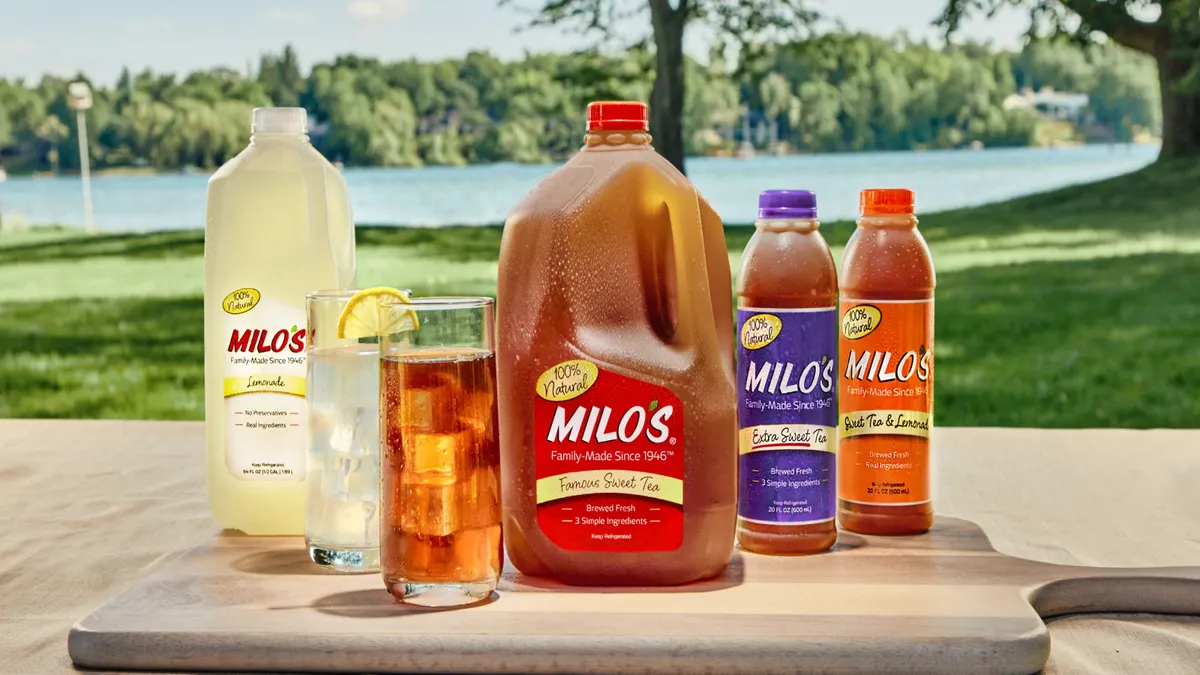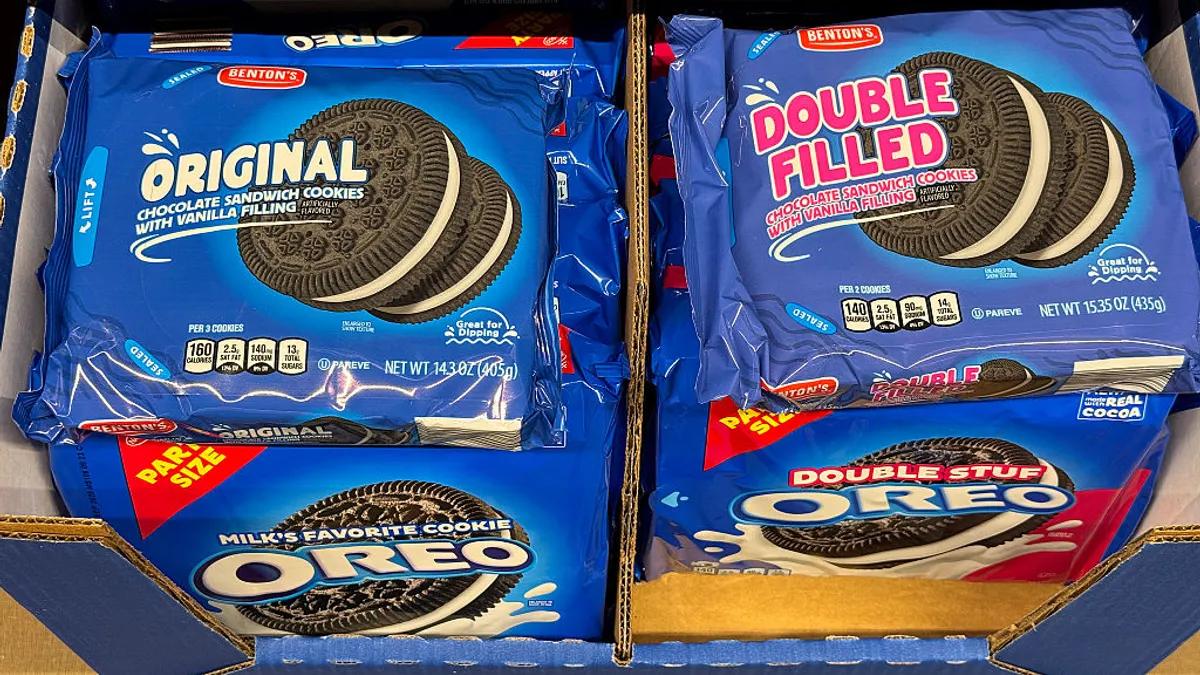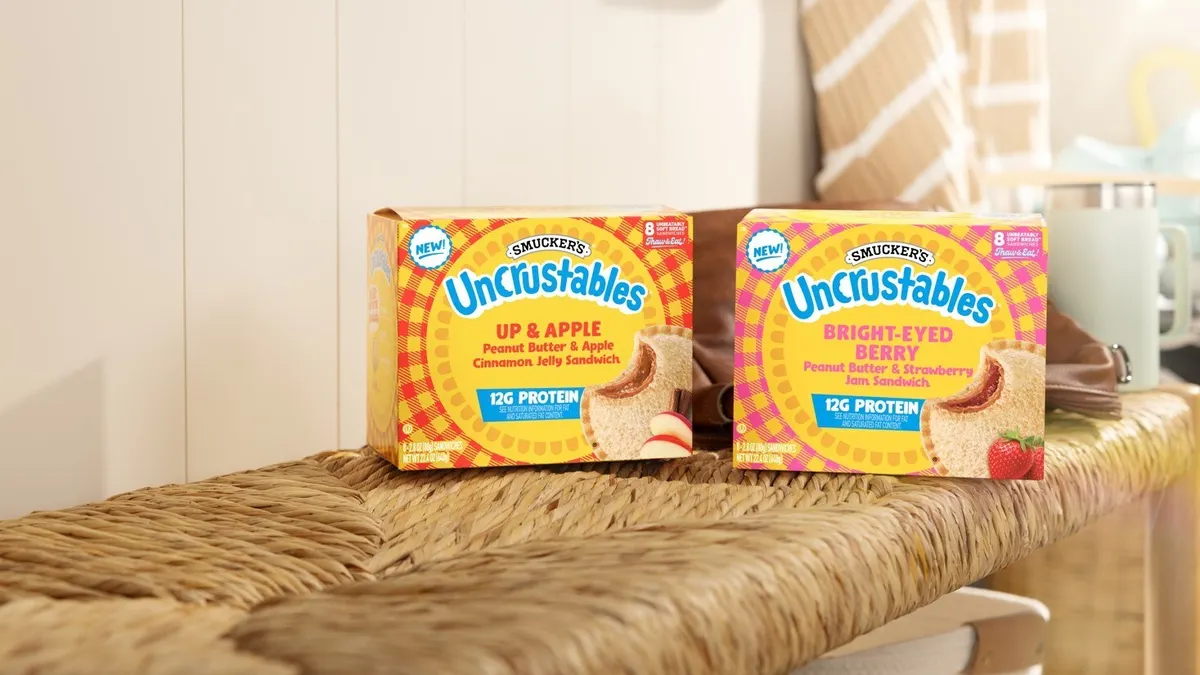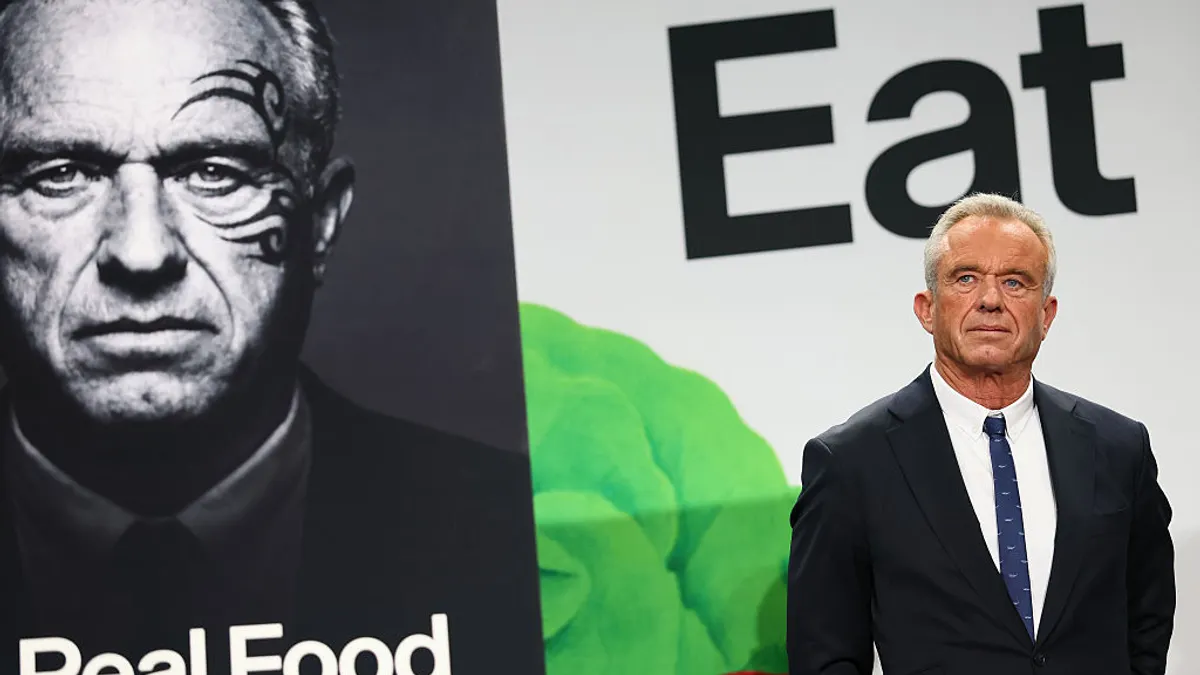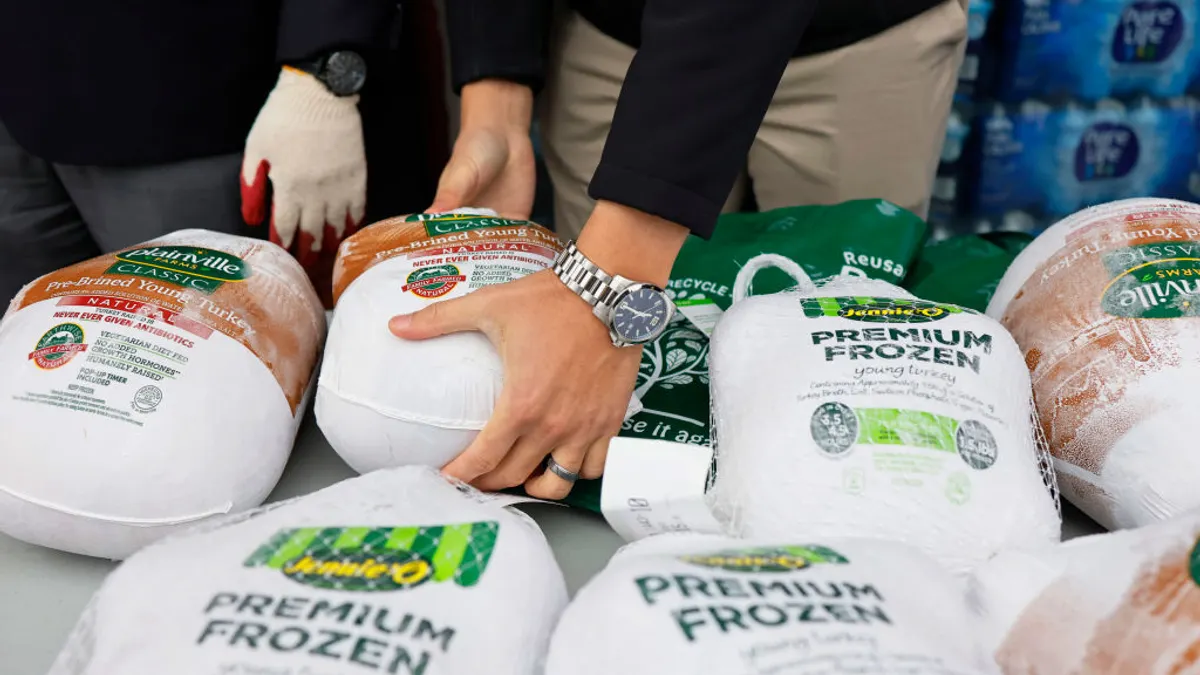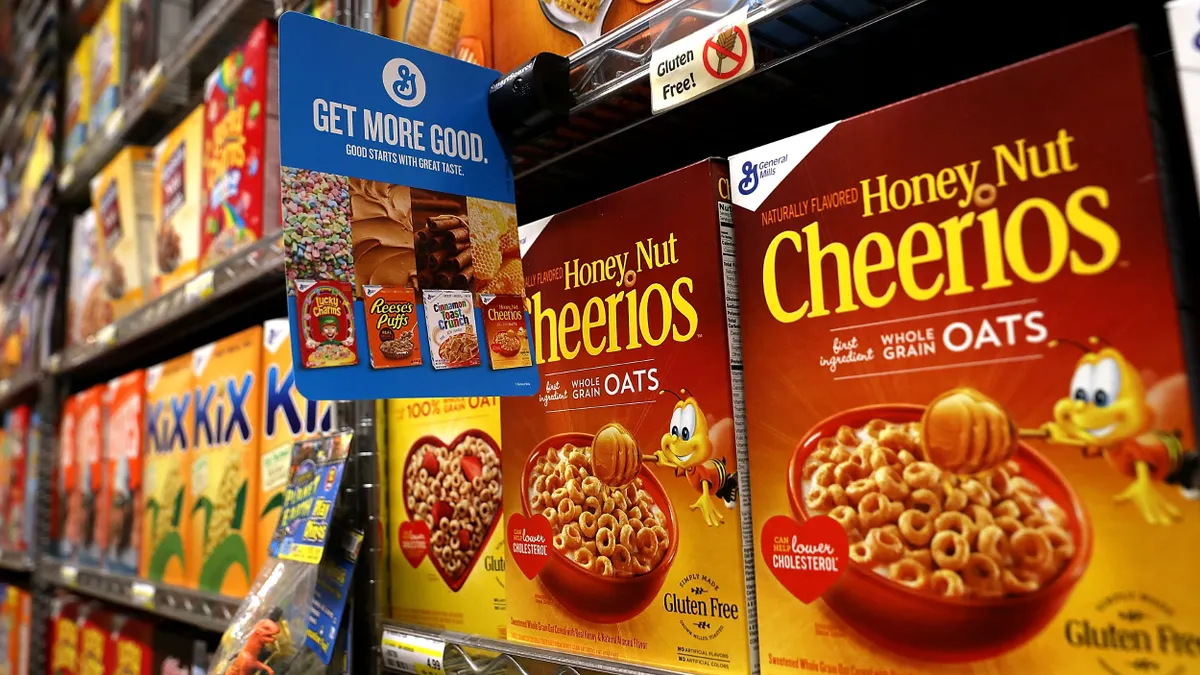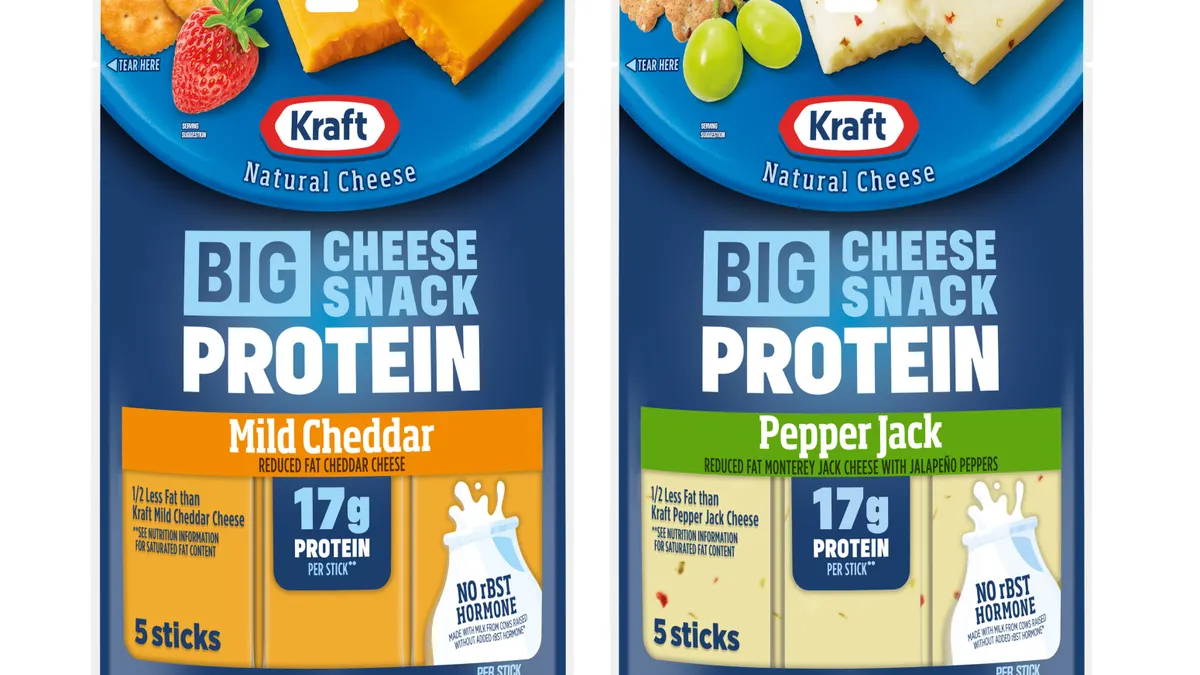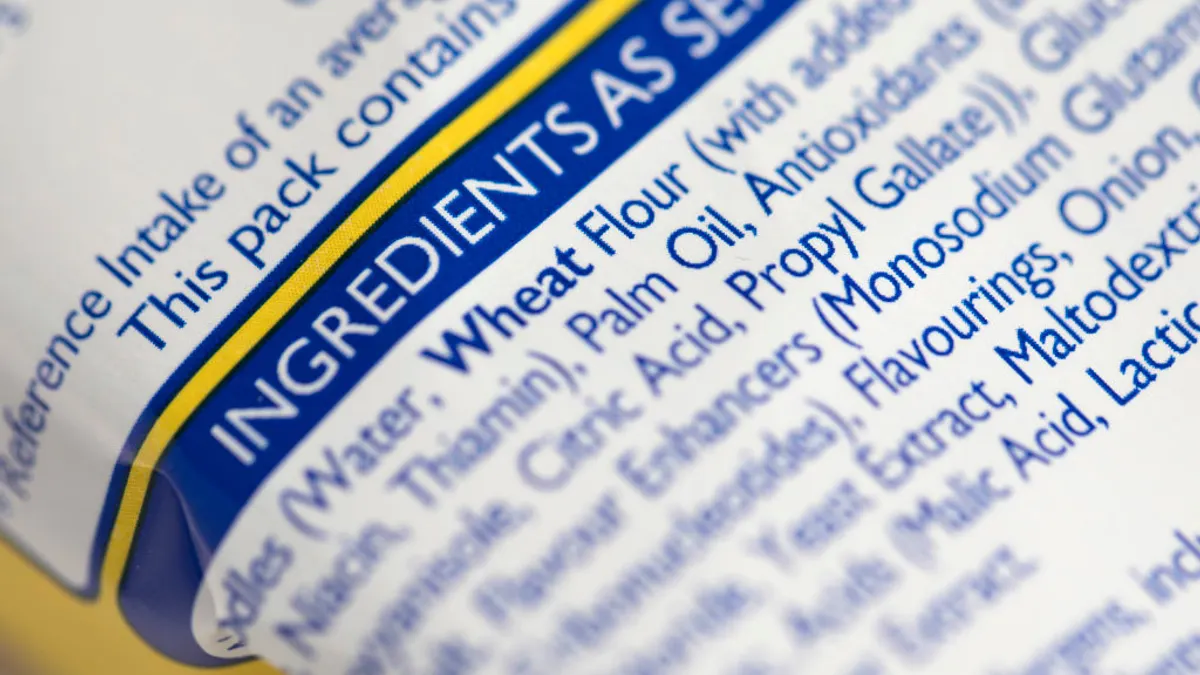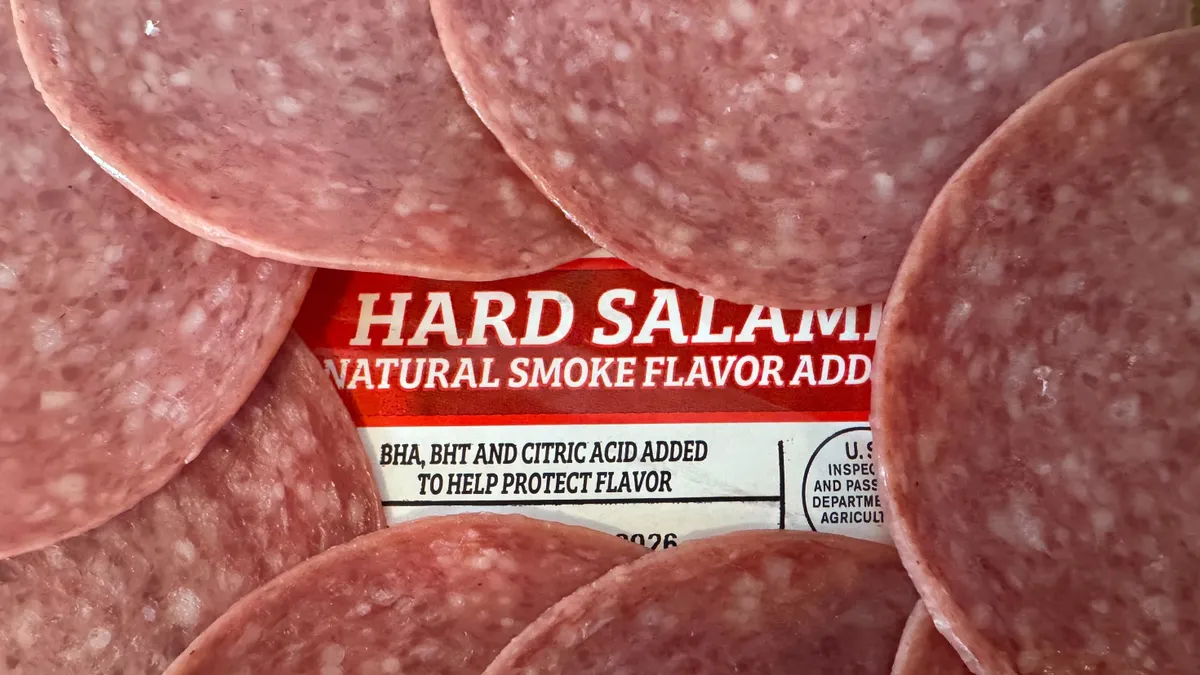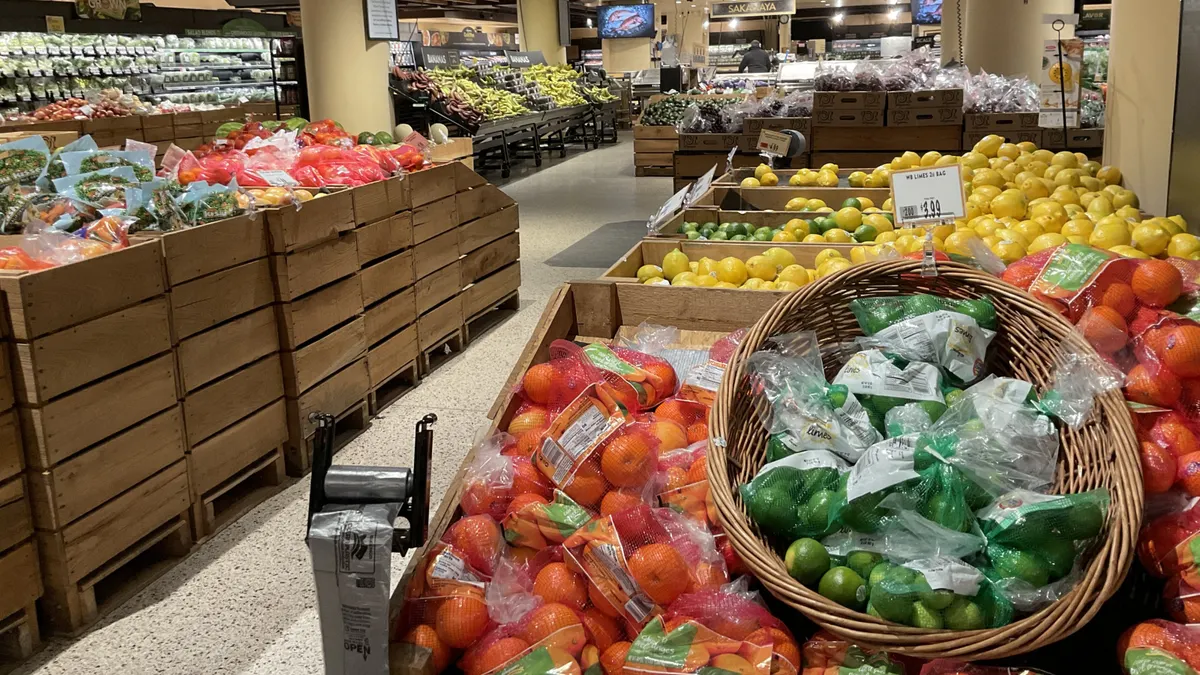Once known for hamburgers, Milo’s Tea Company is making its name as a fast-growing sweet tea and lemonade brand that’s on the path to more than $1 billion in sales by 2027.
During the last decade, sales at the family-owned business have surged from $6.5 million in 2014 to $730 million a year ago.
Sold in more than 55,000 retail locations, Milo’s Famous Sweet Tea is now the top-selling liquid tea in the U.S. based on sales, according to Nielsen data cited by the company. It also sells the fastest-growing lemonade in the country.
“I call us the great American growth story,” said Milo’s CEO Tricia Wallwork.
The company, headquartered about a half hour southwest of Birmingham, Alabama, traces its roots to 1946. It was founded as Milo’s Hamburgers by Milo Carlton and his wife, Bea, after he returned from serving as an Army cook in World War II.
As the hamburger chain expanded, the company noticed people would often visit just for a glass of sweet tea. It wasn’t until the late 1980s that Milo’s eventually started packaging the beverage in gallon jugs commonly used for milk — a move meant to highlight its perishability and the rate at which consumers would drink the tea.
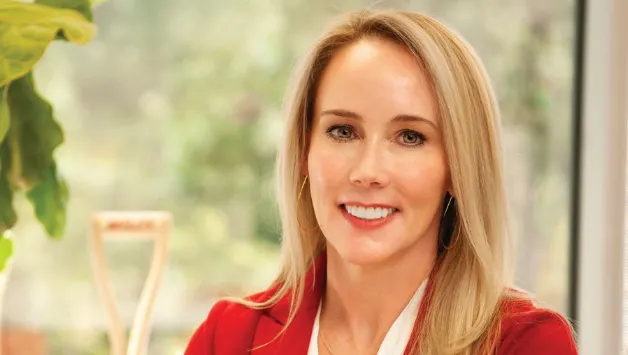
The restaurant was sold in 2002 and is now independent of the tea business.
Nearly 80 years later, the tea’s recipe has remained the same, with just three ingredients: tea, water and sugar. Wallwork, granddaughter of the company’s founders, became CEO in 2012 and has pushed the brand further by overseeing its entry into new areas.
For seven decades, Milo’s has focused on its thriving tea business. It wasn’t until 2014 that it added lemonade to the mix, selling the drink in stores next to its sweet tea within markets where Milo’s had a strong presence.
At the time, Milo’s, much smaller in size and with a stretched marketing budget, wasn’t even certain how its lemonade would perform.
“Could we stretch into another category?” Wallwork recalled. “We weren’t sure.”
It proved to be a hit among loyal Milo’s consumers familiar with the brand and looking for a product made with real ingredients. Milo’s expanded the line by launching Strawberry Lemonade, Raspberry Lemonade and Lemon Sweet Tea in May and plans to release a zero-sugar lemonade in the first quarter of 2026.
“We have a hockey stick [rate of growth], and the hockey stick is real, and I know it because I’ve lived it,” Wallwork said.
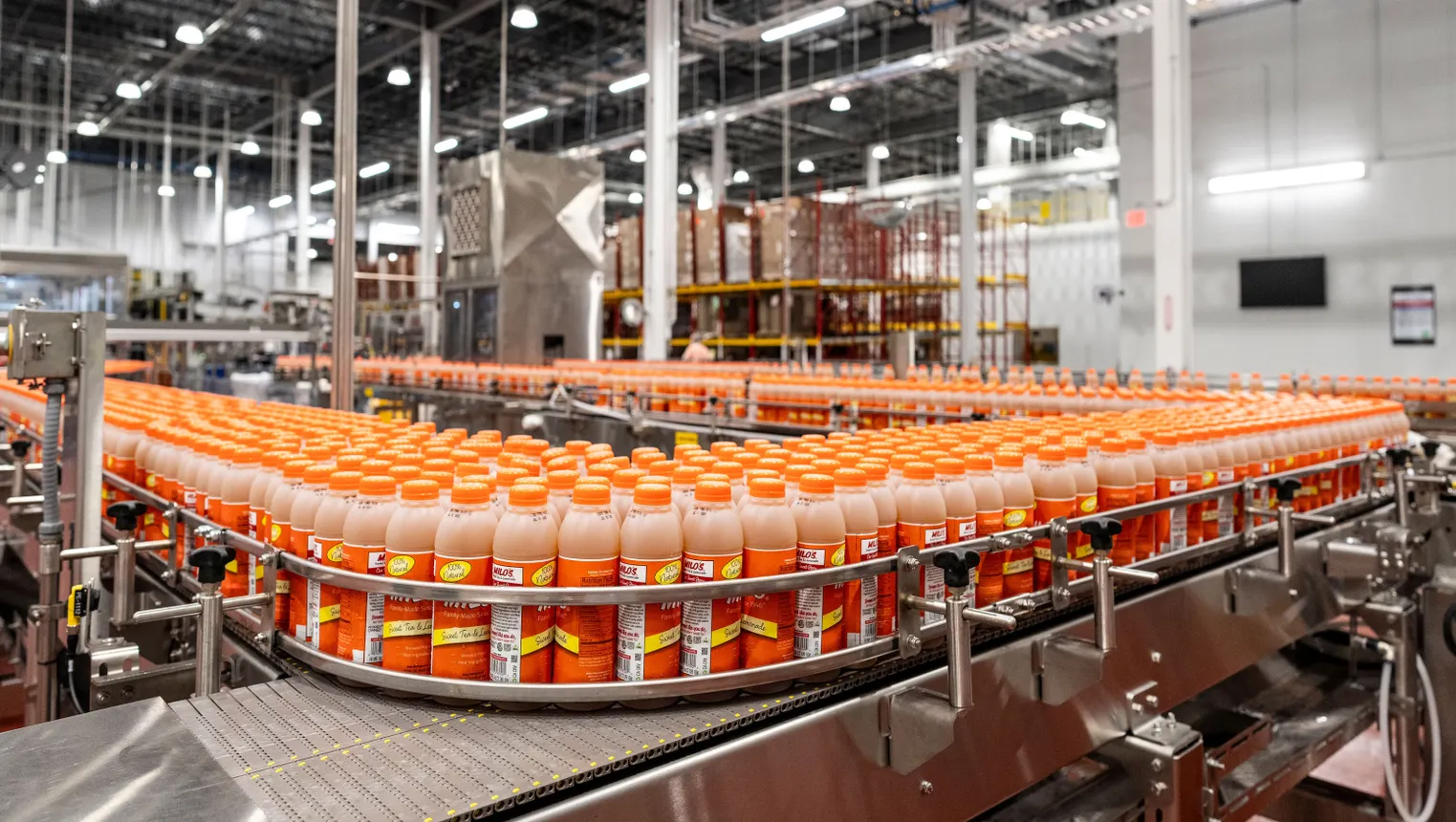
Building trust with workers and consumers
Wallwork is no stranger to Milo’s after working there in high school, moving tea using a dolly or adding caps and stickers to gallon jugs by hand.
The executive admits she had no plans to be involved in the family business. After graduating from college and working as a lawyer for a few years, she soon became “disillusioned.” Eventually, Wallwork quit her job and came back to Milo’s in 2004.
With only 16 employees at the time, Wallwork said she got to “really learn the business from the ground up” by becoming involved in all facets of the operation, from riding route trucks to stocking shelves.
Wallwork’s on-the-floor experience has helped make Milo’s a place where other people are eager to work, too. The company has 1,000 employees who can take a free gallon of tea home from work every day.
Last year, Milo’s received a staggering 70,000 applicants for about 100 positions, Wallwork said, making it harder to get into than Harvard University.
Milo’s has no plans to slow down its red-hot growth pace. The company is focusing on broadening its consumer base and expanding its presence in convenience and club stores, as well as the foodservice channel where it is underpenetrated, Wallwork said.
Milo’s also plans to step up innovation, both within its existing product lines and by entering new refrigerated beverage categories.
“Our consumers are looking for more, better-for-you, natural beverages, and because of the trust that we built, there are additional categories where we feel like we can stretch,” Wallwork said.
To accommodate the company’s booming growth, Milo’s recently opened a $200 million manufacturing and distribution facility in Spartanburg, South Carolina. It is the company’s fourth facility nationwide and third new plant in five years. The company produces 1,800 teas and lemonades — including its gallon, half-gallon and smaller 20-ounce bottles — each minute.
The growth has naturally captured the attention of beverage companies and private equity firms interested in purchasing Milo’s. Wallwork, however, said she plans to keep it in the family.
“People reach out all the time, but our family has just made the decision that we want this to be a multi-generational family business,” Wallwork said. “We can solve more things in the world when we look in terms of not three to five years or a quarter, and [instead] we can look in terms of generations.”


